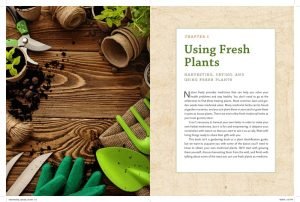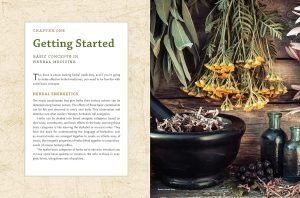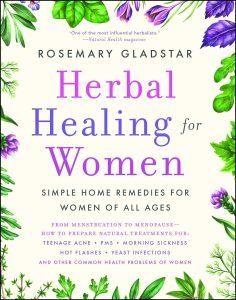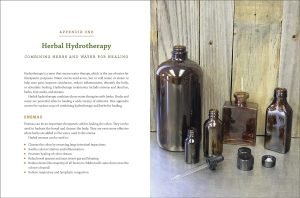Do Herbal Remedies Actually Work?
Have you ever wondered if herbal remedies actually work? With an increasing interest in natural alternatives to traditional medicine, it’s important to understand the effectiveness of these remedies. In this article, we will explore the world of herbal remedies and examine whether they truly provide the healing properties they claim to possess. From ancient traditions to modern-day popularity, get ready to uncover the truth behind herbal remedies and their potential benefits. So, put on your investigative hat and let’s separate fact from fiction!

Understanding Herbal Remedies
Herbal remedies have been used for centuries as a natural way to promote health and well-being. These remedies are derived from plants and can be consumed in various forms such as teas, tinctures, pills, or topical applications. Understanding the definition and historical use of herbal remedies provides insight into their potential benefits and limitations.
Definition of Herbal Remedies
Herbal remedies can be defined as natural substances derived from plants that are used to treat or alleviate various health conditions. These remedies have been passed down through generations and are often based on traditional knowledge and practices. They are believed to harness the healing properties of plants to support the body’s natural ability to heal and maintain balance.
Historical Use of Herbal Remedies
The use of herbal remedies dates back thousands of years, with evidence of their use found in ancient civilizations such as the Egyptians, Greeks, and Chinese. Traditional healers and herbalists used their knowledge of plants and their properties to address a wide range of ailments. These remedies were often steeped in cultural practices and were an integral part of people’s everyday lives.
Scientific Perspective
While herbal remedies have a rich historical background, their efficacy from a scientific standpoint is often questioned. Limited scientific evidence, challenges in studying herbal remedies, and the placebo effect are important considerations when evaluating their effectiveness.
Limited Scientific Evidence
One of the challenges in evaluating the efficacy of herbal remedies is the lack of rigorous scientific studies. Many herbal remedies have not undergone extensive clinical trials or have not been studied using modern research methods. This limited scientific evidence makes it difficult to draw definitive conclusions about their effectiveness.
Placebo Effect
The placebo effect plays a significant role in the perceived benefits of herbal remedies. The belief in the effectiveness of a remedy can lead to positive health outcomes, regardless of the actual properties of the remedy itself. This placebo effect highlights the importance of considering the psychological and emotional aspects of healing.
Challenges in Studying Herbal Remedies
Studying herbal remedies presents unique challenges. The complex nature of plants, variations in their composition, and the potential for interactions between different components make it difficult to standardize herbal remedies for research purposes. Additionally, the use of multiple herbs in combination further complicates the evaluation of their individual effects. These challenges contribute to the limited scientific understanding of herbal remedies.
Popular Herbal Remedies
Despite the limited scientific evidence, certain herbal remedies have gained popularity due to their historical use and anecdotal reports of their benefits. Some popular herbal remedies include Echinacea, Ginseng, St. John’s Wort, Valerian root, and Turmeric.
Echinacea
Echinacea is often used to support the immune system and to alleviate symptoms of the common cold or flu. It is believed to have anti-inflammatory and antiviral properties, though scientific studies provide mixed results regarding its effectiveness.
Ginseng
Ginseng is widely used in traditional Chinese medicine and is believed to enhance physical stamina, improve mental clarity, and boost the immune system. While some studies suggest potential benefits, more research is needed to establish its effectiveness.
St. John’s Wort
St. John’s Wort is commonly used as a natural remedy for mild to moderate depression. It is believed to work by increasing the levels of certain neurotransmitters in the brain. However, its use should be approached with caution, as it can interact with certain medications.
Valerian root
Valerian root is often used as a natural sleep aid and to relieve anxiety. It is believed to have sedative and anxiolytic properties. While some studies support its effectiveness in improving sleep quality, more research is needed to fully understand its mechanisms of action.
Turmeric
Turmeric is a bright yellow spice commonly used in Indian cuisine. It contains a compound called curcumin, which is believed to have anti-inflammatory and antioxidant properties. While preliminary studies suggest potential benefits, more research is needed to determine the optimal dosage and formulation.
Benefits of Herbal Remedies
While the scientific evidence for herbal remedies is limited, many people believe in their potential benefits. Some of the commonly reported benefits include supporting the immune system, reducing inflammation, improving mental well-being, and alleviating digestive issues.
Supporting Immune System
Many herbal remedies, such as Echinacea, are believed to support the immune system. These remedies are often used to prevent or shorten the duration of common illnesses like the cold or flu. While the scientific evidence is inconclusive, some individuals report positive outcomes.
Reducing Inflammation
Inflammation is a natural response in the body that can contribute to various health conditions. Certain herbal remedies, such as Turmeric, are believed to have anti-inflammatory properties. While more research is needed, some individuals report a reduction in pain and inflammation when using these remedies.
Improving Mental Well-being
Herbal remedies like St. John’s Wort and Valerian root are popular choices for individuals seeking natural alternatives to support their mental well-being. These remedies are believed to have mood-enhancing and calming effects. While their efficacy varies, some users report positive changes in their mental state.
Alleviating Digestive Issues
Herbal remedies have long been used to address digestive issues such as indigestion, bloating, and constipation. Certain herbs like Ginger and Peppermint are believed to have carminative properties that can provide relief. While individual experiences may vary, many people seek herbal remedies to support their digestive health.

Potential Risks and Side Effects
While herbal remedies are often considered natural and safe, they are not without potential risks and side effects. It is important to be aware of these risks before incorporating herbal remedies into your wellness routine.
Lack of Standardization
Unlike pharmaceutical drugs, herbal remedies are not subjected to the same stringent regulations regarding their production and quality control. This lack of standardization can lead to variations in potency, purity, and formulation, which may impact their effectiveness and safety. It is essential to choose reputable brands and consult with professionals when considering herbal remedies.
Drug Interactions
Herbal remedies may interact with medications you are currently taking. Some herbs can affect the metabolism or effectiveness of certain drugs, potentially leading to adverse reactions or reduced efficacy. It is crucial to disclose all herbal remedies you are using to your healthcare provider to minimize the risk of drug interactions.
Allergic Reactions
Individuals may have allergic reactions to certain herbs or plant compounds. It is essential to be aware of any potential allergies or sensitivities before using herbal remedies. If you experience any allergic symptoms such as rash, itching, or difficulty breathing, discontinue use immediately and seek medical attention.
Toxicity
While many herbal remedies are generally safe when used appropriately, certain herbs may have toxic effects when consumed in large quantities or for prolonged periods. It is important to follow recommended dosages and guidelines to avoid toxicity. Pregnant women, breastfeeding mothers, and individuals with pre-existing medical conditions should exercise caution and seek professional advice before using herbal remedies.
Regulation of Herbal Remedies
The regulation of herbal remedies varies depending on the country and jurisdiction. In the United States, the Food and Drug Administration (FDA) oversees the regulation of dietary supplements, including herbal remedies.
FDA Regulations
According to the FDA, herbal remedies are classified as dietary supplements, and manufacturers are responsible for ensuring their safety and labeling accuracy. However, the FDA does not require pre-market approval or stringent testing for these products. It is essential for consumers to be informed and vigilant when selecting herbal remedies.
Quality Control Measures
To ensure the safety and quality of herbal remedies, reputable manufacturers may voluntarily follow Good Manufacturing Practices (GMPs). GMPs provide guidelines for the production, testing, and labeling of dietary supplements, including herbal remedies. Look for products with third-party certifications, such as the United States Pharmacopeia (USP) or ConsumerLab.com, to further ensure quality and purity.
Legal Considerations
While herbal remedies are generally legal for personal use, regulations regarding their sale and distribution may vary by jurisdiction. It is important to be aware of the laws in your specific location to ensure compliance. Importing herbal remedies from other countries may also have additional restrictions, so it is crucial to research and adhere to applicable regulations.

Personal Testimonials
Personal testimonials and anecdotal evidence are often cited as proof of the effectiveness of herbal remedies. While these individual experiences should not be discounted, it is important to recognize the role of the placebo effect and cultural beliefs in influencing personal perceptions of these remedies.
Anecdotal Evidence
Many people have reported positive outcomes when using herbal remedies. These personal testimonials highlight the potential benefits of these remedies, especially when no other conventional treatments have been effective. However, it is important to remember that personal experiences are subjective and may not be applicable to everyone.
Placebo Effect
The placebo effect can significantly influence personal perceptions of herbal remedies. When individuals believe in the effectiveness of a remedy, they may experience improvement in symptoms, even if the remedy itself has no direct physiological impact. The placebo effect underscores the mind-body connection and the importance of belief and expectation in the healing process.
Influence of Cultural Beliefs
Cultural beliefs and traditions play a significant role in shaping individual perceptions of health and healing. Many herbal remedies are deeply rooted in cultural practices and are passed down through generations. These cultural beliefs can contribute to the perceived efficacy of herbal remedies and should be considered when evaluating their benefits.
Alternative Approaches to Wellness
In addition to herbal remedies, there are other alternative approaches to wellness that individuals may consider. These approaches focus on holistic health and aim to address the root causes of imbalances in the body and mind.
Holistic Medicine
Holistic medicine emphasizes the integration of physical, mental, emotional, and spiritual aspects of health. It recognizes the interconnectedness of various body systems and the importance of addressing underlying imbalances rather than simply treating symptoms. Holistic practitioners may use a combination of herbal remedies, dietary changes, lifestyle modifications, and other therapies to promote well-being.
Integrative Healthcare
Integrative healthcare combines conventional medicine with evidence-based complementary therapies. This approach recognizes the value of herbal remedies and other alternative modalities alongside conventional treatments. By integrating the best of both worlds, individuals can access a comprehensive and personalized approach to their health.
Combining Herbal Remedies with Traditional Medicine
Many individuals choose to combine herbal remedies with traditional medicine to maximize their chances of achieving optimal health outcomes. This approach should be done in consultation with healthcare professionals who can provide guidance on potential interactions and ensure safe and effective integration of treatments.
Importance of Consultation
While herbal remedies may seem accessible and natural, it is essential to seek professional advice before incorporating them into your wellness routine. Consultation with healthcare professionals helps ensure safe and informed decision-making.
Seeking Professional Advice
Healthcare professionals, such as doctors, naturopaths, or herbalists, can provide valuable guidance when considering herbal remedies. They can help assess your health condition, review potential risks or interactions, and recommend specific herbs or formulations based on your individual needs.
Considering Individual Health Conditions
Individual health conditions, medications, and lifestyle factors should be carefully considered when evaluating the use of herbal remedies. What may be safe and effective for one person may not be suitable for another. Personalized advice from healthcare professionals can help navigate these complexities and ensure the best course of action.
Potential Risks of Self-diagnosis
Self-diagnosis and self-treatment can be risky when it comes to herbal remedies. While they may seem harmless, some herbs can have potent effects and interact with medications or exacerbate underlying health conditions. It is always best to seek professional advice to avoid potential complications.

Conclusion
Understanding the world of herbal remedies requires a balanced approach that considers both evidence and personal experiences. While scientific research on many herbal remedies is limited, their historical use and personal testimonials suggest potential benefits. It is crucial to recognize the limitations and challenges in studying herbal remedies, as well as the influence of the placebo effect and cultural beliefs.
When considering herbal remedies, it is important to be aware of potential risks and side effects, such as lack of standardization, drug interactions, allergic reactions, and toxicity. The regulation of herbal remedies varies, and consumers should exercise caution when selecting and using these products.
Personal testimonials and anecdotal evidence can provide valuable insights into the potential benefits of herbal remedies. However, it is essential to approach these accounts with an understanding of the placebo effect and the influence of cultural beliefs.
Ultimately, the integration of herbal remedies with other approaches to wellness, such as holistic medicine and integrative healthcare, offers a comprehensive approach to supporting overall well-being. Seek professional advice and consider individual health conditions to make informed decisions about incorporating herbal remedies into your health routine.
With a careful balance of evidence, personal experiences, and professional guidance, herbal remedies have the potential to enhance holistic wellness and contribute to overall health and vitality.




